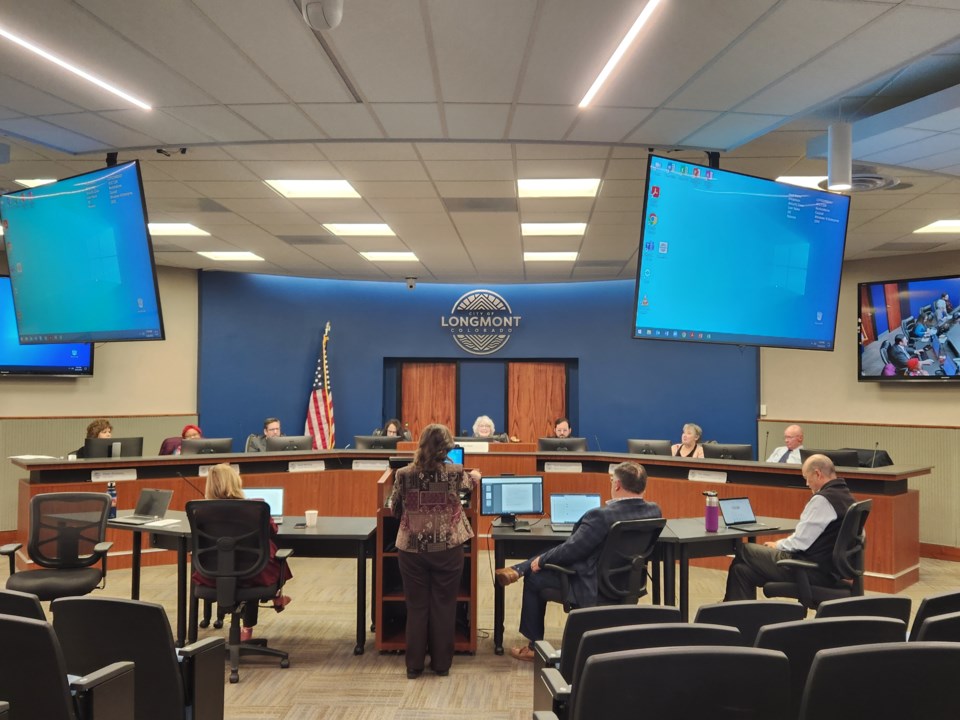Longmont is moving forward with universal recycling and composting ordinances in the commercial sector to help achieve the city’s ambitious zero waste goals.
At a workshop Tuesday, city council supported a timeline that would put universal recycling in place by June 2024 with enforcement beginning the next year and food composting by the commercial sector in June 2025 with enforcement the following year.
The workshop comes after the council passed an updated Zero Waste Resolution in September setting new targets and highlighting community needs and priorities on reducing waste. It sets a target of 75% of trash diverted from landfill by 2030 and 95% by 2050.
Naomi Curland, executive director of Longmont Food Rescue who also sits on the board for Sustainable Resilient Longmont, praised the council for this ordinance targeting commercial waste diversion during public comment.
“SRL is excited to see the city follow up on the goals set forth this year in the updated Zero Waste Resolution by developing policy to reach those waste diversion goals,” she said. “We believe that a Universal Recycling Ordinance is a smart first step in this direction.”
Identifying those with the highest waste diversion impact, the city’s top action focuses on recycling and diversion of food waste from the commercial and multifamily sectors.
For recycling, the plan is to finalize the ordinance in the first half of 2023 with the second half of the year focused on outreach and education. With the proposal, the ordinance would take effect for larger businesses and multifamily complexes in January 2024 and all commercial properties in June 2024.
However, there would be a yearlong education period before fines would be enforced beginning June 2025.
City staff attempted to estimate how much more recycling and composting would cost businesses. Because of the variability in prices, it’s hard to assess the costs of services, but staff estimated that per yard of refuse, recycling is 39% more expensive and composting is 151% more.
Composting would start a year later than universal recycling for food focused businesses. As proposed, the ordinance would take effect in June 2025, with larger businesses in January and all others in June, with enforcement to begin in June 2026.
The city also wants to look at composting of other green wastes like yard materials, but doing so is a bit more complicated. With no regional composting facility and little known about the disposable methods of local landscapers, the city wanted to wait until 2029 to require composting of lawn materials.
All but one refuse hauler serving Longmont offers composting, according to city staff, but costs remain higher for this method of waste reduction. The city said it is in initial talks with the city of Boulder about possibly building a regional composting facility, but that’s a far way off.
Staff added that they’ve been in talks with local businesses, refuse haulers and community members to build this ordinance. They said everyone has been in favor, but noted the need for more public education and fiscal support for smaller businesses to bring on recycling and composting.
Much is yet to be determined in the specifics of the ordinance. Specific exemptions and how that process would work will be hashed out in the months to come.



